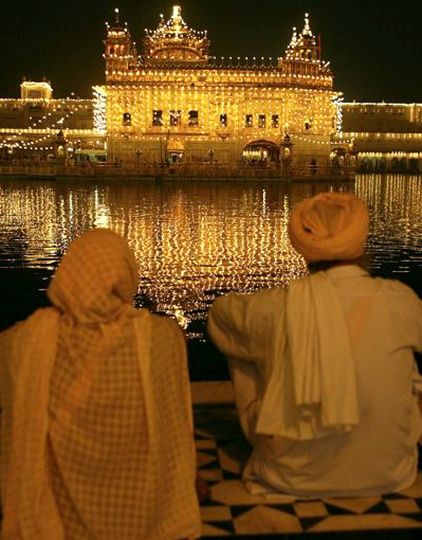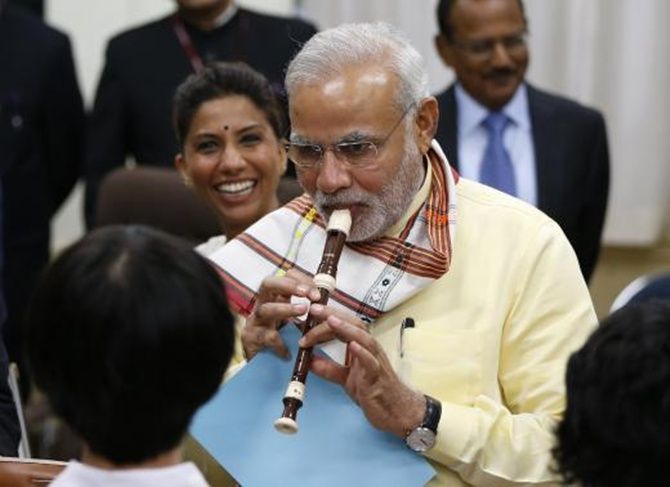
If oil prices stay at their new level of $72 or drop further, India will be in the happy position next year of enjoying a surplus on the trade account, says T N Ninan.
India is the third largest importer of crude oil, the third largest importer of coal and the fifth or sixth largest importer of natural gas.
Overall, it is probably the fourth largest importer of energy. So the news on oil prices makes India one of the largest beneficiaries.
The country’s net energy imports (mostly oil) account for more than six per cent of its gross domestic product (GDP).
With the price of energy cut by nearly 40 per cent in the last six months, the net import bill falls in a full year by 2.5 per cent of GDP (or Rs 3.2 lakh crore).
If oil prices stay at their new level of $72 or drop further, as the big oil exporters seem to think they will, and nothing else changes dramatically on the trade front, India will be in the happy position next year of enjoying a surplus on the trade account (both goods and services).
That will be the first “current account” surplus in over a decade - the last such surplus was in 2004, when oil prices were at about $25 per barrel.
The implications of this amazing turnaround are dramatic. If capital inflows (portfolio as well as foreign direct investment) continue at their present rate of $40 billion annually, India will be awash in dollars, and there will be upward pressure on the rupee.

The fiscal arithmetic will improve because the only surviving petro-product subsidies will be on kerosene and cooking gas, and these, too, will stand reduced.
Indian Oil and the other oil marketing companies will report a surge in profits, and inflation rates will drop. Narendra Modi and Arun Jaitley should send up a thank-you prayer to the oil god.
Should they and we merely enjoy the party, or think strategically? Through the last decade, as oil prices quadrupled, the government was forced to virtually eliminate central taxes on crude and petro-products in an effort to keep down prices and tackle rampant inflation.
Petrol and diesel are now among the lowest taxed goods in the country. There is no customs duty on crude imports, and the excise on unbranded petrol and diesel (even after the hikes earlier this month) is less than Rs 3 per litre.

State governments levy taxes, for sure, but there is a good case for Mr Jaitley to jack up the customs duty. A 10 per cent tariff (done incrementally in two or three stages, to avoid a price shock) would yield Rs 60,000 crore - enough to pay for the subsidies on kerosene and cooking gas.
The combined effect of lower subsidies and higher revenues could shrink the fiscal deficit by one percentage point - a bonanza if ever there was one.
The higher duty can be absorbed by companies on account of the cushion provided by falling crude prices, so there will be no danger of stoking inflation afresh.
Consumers have already enjoyed a Rs 10 drop in the price of petrol, and even a drop in the price of diesel.

This once-in-a-decade opportunity to capitalise on cheaper oil should not be wasted in any desire to win easy popularity, especially since consumers as a class stand to benefit from better macroeconomic numbers.
As for the exchange value of the rupee, if Mr Modi is serious about “Make in India and sell anywhere”, he has to keep the rupee competitive.
That means asking the Reserve Bank to repeat what it did in the mid-2000s: buy dollars as much as it can, and shore up foreign exchange reserves.
Most observers agreed that the reserves need to get to $400 billion, from a little over $300 billion today.
That cannot be achieved overnight, but now is a good time to start getting there.













 © 2025 Rediff.com -
© 2025 Rediff.com -